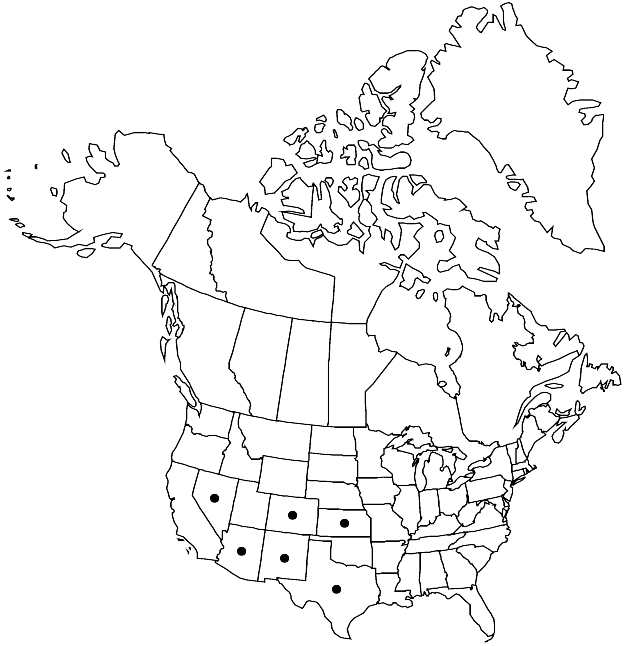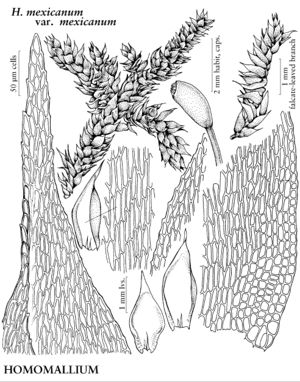Homomallium mexicanum
Rev. Bryol. 37: 53. 1910.
Illustrated
Revision as of 22:49, 27 May 2020 by imported>Volume Importer
Stems 2–2.5 cm, green or yellowish green, branches curved at apices. Leaves homomallous, 0.8–1.3(–1.5) mm; margins reflexed at base, entire or serrulate at apex; apex abruptly slender-acuminate, not subulate; alar cells quadrate-rectangular, walls thick, region extending 1/4–1/3 leaf margin; distal laminal cells 25–35 × 4–7 µm, walls thick. Seta yellow-orange, 1–1.6 cm. Capsule yellowish to reddish, 1–1.7 mm. Spores 11–20 µm, minutely papillose.
Distribution

w United States, Mexico, Asia, Australia.
Discussion
Varieties 2 (2 in the flora).
Homomallium mexicanum is a largely subtropical species that appears more robust than the other two North American species of Homomallium because of its larger and more spreading leaves.
Selected References
None.
Key
| 1 | Leaves to 1.3 mm, not imbricate, ovate-lanceolate; apices narrowly acuminate; margins denticulate distally. | Homomallium mexicanum var. mexicanum |
| 1 | Leaves to 1.5 mm, closely imbricate, broadly ovate; apices short-acuminate; margins entire. | Homomallium mexicanum var. latifolium |
